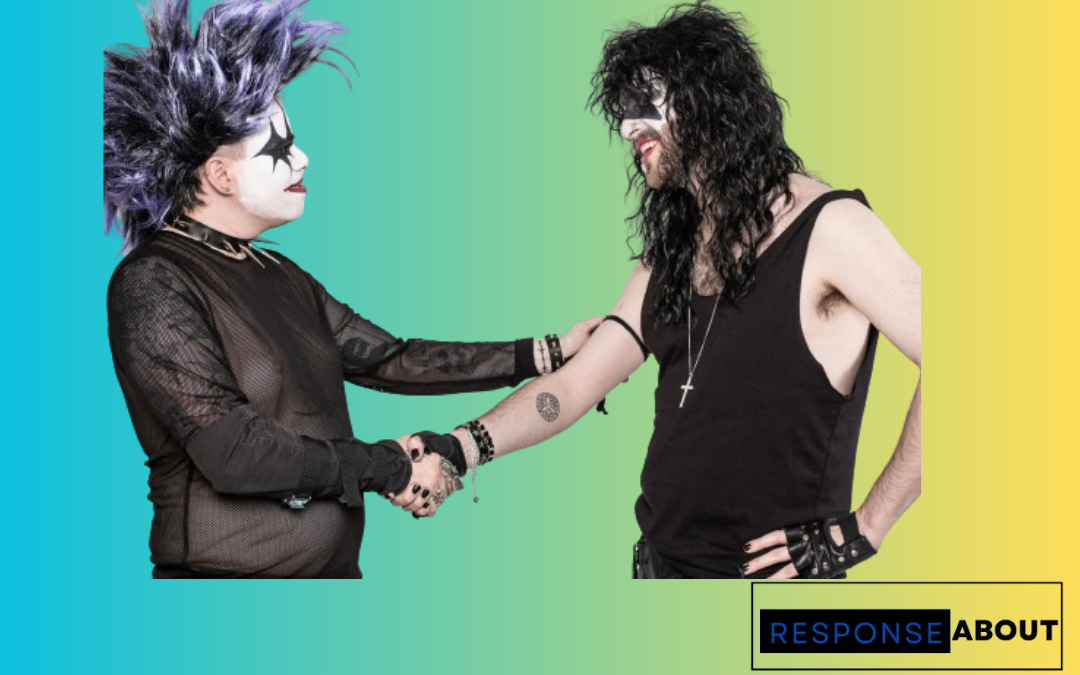Last year, I discovered a friend had been talking behind my back while pretending to support me to my face. When confronted, they denied everything despite the screenshots in my phone. In that moment, I wished I had the perfect response that would concisely capture their hypocrisy and make them realize I wasn’t going to be manipulated anymore.
Have you ever found yourself speechless when facing a fake friend’s betrayal? There’s something uniquely painful about someone presenting themselves as an ally while secretly undermining you. Sometimes, the right roast can expose their two-faced behavior and help you reclaim your dignity in a situation where you’ve been treated unfairly.
In this article, I’ve compiled 40 clever and pointed roasts specifically designed for fake friends. From witty observations to cutting truths, these comebacks will help you stand your ground and expose the duplicity you’ve been dealing with.
Jump to section
- Witty Roasts for Two-Faced Behavior
- Savage Comebacks for Backstabbers
- Clever Responses to Fake Support
- Roasts for Social Climbers and Users
- Setting Boundaries with Final Words
- When to Use Roasts (And When to Walk Away)
- Final Take
- FAQs About Dealing with Fake Friends
Witty Roasts for Two-Faced Behavior
These clever comebacks highlight the contradictions in a fake friend’s behavior with sharp wit rather than pure aggression.
#1. You’ve mastered the art of playing both sides—too bad neither one is genuine
This roast calls out their two-faced nature while pointing out that neither persona is authentic. It highlights that their entire social presentation is a performance rather than actual connection.
#2. I’m impressed by how your personality changes depending on who’s in the room
This observation draws attention to their chameleon-like behavior without resorting to name-calling. According to social psychologist Dr. Susan Krauss Whitbourne, individuals who frequently shift personas often struggle with authentic identity development.
#3. Your back must hurt from all that backstabbing you do
This metaphorical roast uses wordplay to highlight their betrayal memorably. It’s direct enough to make your point while still maintaining some humor.
#4. It must be exhausting keeping track of all your different versions of the “truth.”
This comeback highlights the cognitive dissonance required to maintain different narratives. It points out that dishonesty is ultimately more complicated than straightforward behavior.
#5. I envy your acting skills—you almost had me believing you were a real friend
This backhanded compliment acknowledges their performance while making it clear you see through it. Communication researcher Dr. Bella DePaulo notes that detecting deception often results in a sense of clarity that can feel empowering after confusion.
#6. I’d ask which personality I’m talking to today, but honestly, I’ve lost interest in the show
This dismissive roast indicates you’re not just hurt but bored by their inconsistency. It diminishes the power of their manipulation by treating it as tedious rather than hurtful.
#7. You should really consider a career in fiction—you’ve been practicing your whole life
This cutting comment frames their dishonesty as a character flaw rather than a situational choice. It suggests that fabrication is their natural state rather than authentic connection.
#8. I’m not confused by your mixed signals—I’m just disappointed by your lack of integrity
This direct roast shifts from emotional hurt to moral judgment. It elevates the conversation from personal conflict to ethical standards, placing you on solid ground.
💡 Pro tip: Delivery matters as much as the words themselves. A calm, confident tone often carries more impact than an emotional outburst. According to conflict resolution expert Dr. Tammy Lenski, maintaining composure while delivering difficult truths demonstrates personal strength.
Savage Comebacks for Backstabbers
When someone has actively worked against you while pretending to be in your corner, these more pointed roasts address the betrayal directly.
#9. I don’t know what’s worse—your disloyalty or your delusion that I wouldn’t notice
This roast challenges both their behavior and their assumption of your naivety. It asserts your awareness and intelligence in the face of their manipulation.
#10. Interesting how you’re always involved in drama but somehow never responsible for it
This observation highlights a pattern common to many fake friends—their perpetual victim status despite being at the center of conflicts. Psychologists call this “externalization of blame,” a defense mechanism for avoiding accountability.
#11. I’ve met more genuine people in sales pitches than in our entire friendship
This comparative roast puts their fakeness in perspective by suggesting even transactional relationships have more authenticity. It’s particularly effective because it uses a widely understood reference point.
#12. For someone with so many faces, it’s surprising none of them are interesting
This dual-layered roast attacks both their authenticity and their appeal. It suggests that despite all their different personas, none are compelling enough to maintain your interest.
#13. The saddest part isn’t that you lie—it’s that you think you’re good at it
This dismissive comeback diminishes their manipulation skills while acknowledging their intentions. It positions you as seeing through their attempts rather than being victimized by them.
#14. I’d rather have honest enemies than whatever category of convenience you fall into
This value statement prioritizes authenticity over false pleasantries. According to friendship researcher Dr. Irene Levine, many people find relief in ending ambiguous relationships that cause anxiety about where they stand.
#15. It’s impressive how quickly you forget your own lies—I’ve been keeping track
This threatening roast implies you have receipts for their dishonesty. It shifts the power dynamic by suggesting you’re not just aware but have evidence of their behavior patterns.
#16. I wonder which version of this conversation you’ll share with others later
This preemptive callout anticipates their pattern of distortion. It demonstrates awareness of their usual tactics and removes the element of surprise they rely on.
Clever Responses to Fake Support
These roasts address the painful experience of receiving hollow encouragement or insincere support from someone pretending to be in your corner.
#17. Your support is like a social media filter—artificial and designed to make you look good
This metaphorical roast uses a contemporary reference to highlight how their “support” is more about appearance than substance. It frames their behavior as self-serving rather than genuinely helpful.
#18. Thanks for the “encouragement”—I’ll file it with your other performances
This sarcastic response acknowledges their words while categorizing them as inauthentic. The reference to “filing” suggests you’re documenting their pattern rather than taking it at face value.
#19. I’ve gotten more sincere support from automated customer service messages
This comparative roast suggests even programmed responses have more authenticity than their hollow words. It uses humor to highlight the emptiness of their encouragement.
#20. Your compliments and criticisms have something in common—they both happen behind my back
This observation identifies a pattern of indirect communication that characterizes many fake friendships. It demonstrates awareness of their two-faced behavior without emotional reactivity.
#21. I don’t need a cheerleader who’s secretly hoping I’ll fall
This direct response cuts through pretense to name the underlying dynamic. According to research published in the Journal of Social and Personal Relationships, competitive undermining is common in friendships characterized by envy.
#22. The difference between us is I don’t need to tear you down to feel good about myself
This comparative roast highlights your different values while implying their support is undermined by jealousy. It positions you on the moral high ground without excessive aggression.
#23. I appreciate your “concern”—it’s given me a master class in what insincerity sounds like
This backhanded response frames their fake support as educational rather than hurtful. It suggests you’ve gained wisdom from their behavior rather than being victimized by it.
#24. Your “helpful advice” always seems designed to make me doubt myself—interesting strategy
This analytical roast identifies the manipulative nature of their guidance. It demonstrates that you recognize the psychological impact their words are designed to have.
Roasts for Social Climbers and Users
When dealing with fake friends who are primarily using you for social advantage or personal gain, these roasts address their calculating behavior.
#25. I’ve finally figured out your friendship algorithm—it’s all about what benefits you
This tech-inspired roast frames their behavior as mechanical and calculated rather than emotionally connected. It suggests their approach to relationships is formulaic rather than genuine.
#26. Your networking skills would be impressive if they weren’t so transparent
This backhanded compliment acknowledges their social strategy while making it clear you see through it. It shifts from feeling used to seeing their tactics as obvious and unrefined.
#27. Fascinating how your interest in me directly correlates with what I can do for you
This observation identifies the transactional nature of their attention. According to social exchange theorists, recognizing imbalanced relationships can be the first step toward establishing healthier boundaries.
#28. You collect friends like accessories—always matching them to the occasion
This metaphorical roast highlights how they view relationships as status symbols rather than meaningful connections. It frames their behavior as shallow and materialistic.
#29. I’ve noticed you’re an excellent friend whenever you need something
This pattern-identifying roast calls attention to the timing of their friendliness. It demonstrates awareness of the correlation between their needs and their behavior toward you.
#30. Your loyalty has a price tag I’m no longer willing to pay
This boundary-setting roast uses financial metaphor to address the transactional nature of their friendship. It signals both awareness and an unwillingness to continue the unbalanced exchange.
#31. It’s amazing how quickly you remember I exist when you need a favor
This observation highlights the conditional nature of their attention. It frames their behavior as transparent and predictable rather than hurtful or surprising.
#32. I’ve realized I’m just a stepping stone in your social climbing expedition
This metaphorical roast acknowledges their strategic use of relationships for advancement. It demonstrates that you understand your role in their broader social agenda.
Setting Boundaries with Final Words
These powerful roasts serve as last words when you’re ready to create distance from a fake friendship.
#33. I’ve outgrown our arrangement—I’m looking for actual friendships now
This growth-oriented response frames the end of the relationship as your evolution rather than their failure. It establishes a clear boundary while maintaining your dignity.
#34. I’m done being the friend you reach out to when all your better options are busy
This direct boundary sets a clear standard for how you expect to be treated. According to psychologist Dr. Henry Cloud, author of “Boundaries,” clearly articulating your standards is essential for healthy relationships.
#35. I’ve finally recognized the difference between being needed and being valued
This insightful observation distinguishes between transactional and genuine connections. It signals your raised awareness and standards for friendship.
#36. Consider this my resignation from my role in your audience
This metaphorical boundary frames their behavior as a performance that you’re no longer willing to watch. It diminishes their importance by positioning them as seeking attention rather than connection.
#37. I hope you find friends who don’t notice what I’ve noticed
This subtle yet cutting final word suggests their pattern will continue, but you’re removing yourself from it. It implies that awareness, not their behavior, is what ended the friendship.
#38. I’m no longer interested in a friendship where loyalty is optional
This value-based boundary clearly articulates your non-negotiable expectation in relationships. It frames the ending as a matter of principle rather than personal conflict.
#39. I’ve learned that silence is often the best response to manipulation
This reflective final word suggests you’re choosing disengagement over confrontation. According to research from the American Psychological Association, strategic disengagement can be healthier than ongoing conflict with manipulative individuals.
#40. I wish you well with whoever’s next in your rotation of convenient friendships
This dismissive yet not overtly hostile final word acknowledges their pattern while removing yourself from it. It wishes them well while making it clear you understand their approach to relationships.
💡 Pro tip: Before delivering a final-word roast, consider whether complete disengagement might be healthier than a memorable exit line. According to relationship experts, the most effective boundary with toxic individuals is often quiet distance rather than confrontation.
When to Use Roasts (And When to Walk Away)
While these roasts can be satisfying and sometimes necessary, it’s important to use them strategically:
Consider your goal—are you hoping to change their behavior, express your hurt, or simply create distance? Different objectives might call for different approaches or none at all.
Assess the relationship context—roasting a peripheral acquaintance might have different consequences than confronting a deeply embedded friend who shares your social circle.
Evaluate your emotional state—delivering roasts from a place of raw hurt often escalates conflict rather than providing closure. Sometimes temporary distance allows for more effective communication later.
Consider the potential backlash—fake friends often excel at spinning narratives in their favor. Be prepared for possible reputation management afterward.
Remember that sometimes the most powerful response is no response. According to psychologist Dr. Ramani Durvasula, who specializes in narcissistic relationships, “The opposite of love isn’t hate—it’s indifference.”
Final Take
When dealing with fake friends, well-crafted roasts can help you reclaim your power and set necessary boundaries. The right comeback can succinctly capture the truth of a situation, making it clear you see through the manipulation and aren’t willing to participate in it any longer.
However, the ultimate goal shouldn’t be delivering the perfect zinger, but rather creating healthier relationships and protecting your wellbeing. Sometimes the most effective response to fakeness is simply redirecting your energy toward authentic connections that don’t require constant vigilance or defense.
Remember that identifying fake friends is a sign of developing wisdom and self-respect. While the discovery can be painful, it often makes room for more genuine connections aligned with your values and worthy of your trust.
What’s most important isn’t winning the exchange but ensuring you maintain your integrity and emotional health through the process. The best revenge against fake friends isn’t a cutting roast—it’s moving forward to build a life filled with authentic relationships that make the fake ones irrelevant.
FAQs About Dealing with Fake Friends
Should I confront a fake friend or just distance myself?
This depends on your specific situation and goals. Confrontation can provide closure but risks escalation or manipulation of the narrative. According to psychologist Dr. Marisa Franco, asking yourself “What outcome am I hoping for?” can guide your decision. If your primary goal is personal peace rather than changing their behavior, creating distance without a dramatic confrontation might be most effective.
How can I tell if someone is a genuinely fake friend or if we’re just growing apart?
Look for patterns rather than isolated incidents. Authentic friends who are growing apart typically show gradual, consistent change and respond openly to direct communication. Fake friends often display contradictions between their words and actions, treat you differently in different contexts, and respond defensively when gently questioned. Trust your intuition—that uncomfortable feeling around certain friends often signals recognition of incongruence in their behavior.
Will using these roasts make me just as bad as the fake friend?
Standing up for yourself with honesty isn’t equivalent to persistent fakeness or manipulation. However, delivery and intent matter. According to ethics researcher Dr. Brené Brown, speaking truth from a place of personal integrity differs fundamentally from lashing out to wound. Focus on accurately naming the behavior rather than attacking their character, and consider whether your response aligns with your own values about how to treat others—even difficult ones.


